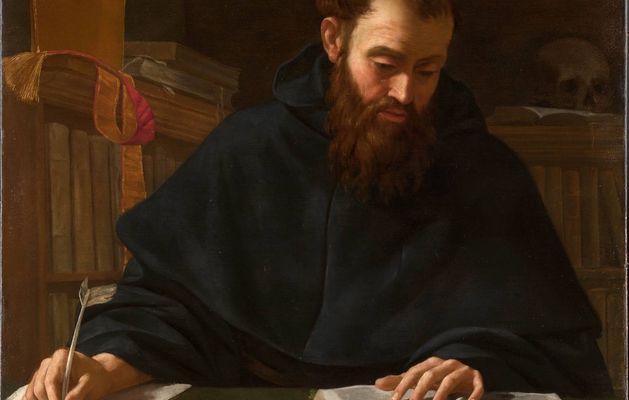Discover Sant'Agostino: from sinner to Christian theologian

Saint Augustine, bishop of Hippo in northern Africa (from 354 to 430 AD), was one of the great minds of the early Christian church, a theologian whose ideas influenced both Catholics and Roman Protestants forever.
But Augustine did not come to Christianity by a simple road. At a young age he began to seek the truth in the pagan philosophies and popular cults of his time. His young life was also marked by immorality. The story of his conversion, told in his book Confessions, is one of the greatest Christian testimonies of all time.
Crooked path of Augustine
Agostino was born in 354 in Thagaste, in the North African province of Numidia, today Algeria. His father, Patrizio, was a pagan who worked and saved so that his son could receive a good education. Monica, her mother, was a committed Christian who constantly prayed for her son.
From a basic education in his hometown, Augustine started studying classical literature, then went to Carthage to train in rhetoric, sponsored by a benefactor named Romanian. Bad company has led to bad behavior. Augustine took a lover and fathered a son, Adeodatus, who died in 390 AD
Guided by his hunger for wisdom, Augustine became a Manichean. Manichaeism, founded by the Persian philosopher Mani (from 216 to 274 AD), taught dualism, a rigid division between good and evil. Like Gnosticism, this religion claimed that secret knowledge was the way to salvation. He attempted to combine the teachings of Buddha, Zoroaster and Jesus Christ.
In the meantime, Monica had prayed for the conversion of her son. This finally happened in 387, when Augustine was baptized by Ambrogio, bishop of Milan, Italy. Augustine returned to his hometown of Thagaste, was ordained a priest and a few years later he was appointed bishop of the city of Hippo.
Augustine possessed a brilliant intellect but maintained a simple life, very similar to a monk. He encouraged monasteries and hermits within his bishopric in Africa and always welcomed visitors who could engage in learned conversations. It has worked more as a parish priest than as a detached bishop, but throughout his life he has always written.
Written on our hearts
Augustine taught that in the Old Testament (Old Covenant), the law was outside of us, written on stone tablets, the Ten Commandments. That law could not entail justification, only transgression.
In the New Testament, or New Covenant, the law is written within us, in our hearts, he said, and we are made righteous through an infusion of God's grace and agape love.
That justice does not come from our own works, however, but is won for us through the atoning death of Christ on the cross, whose grace comes to us through the Holy Spirit, through faith and baptism.
Augustine believed that Christ's grace was not credited to our account to resolve our sin, but rather that it helps us keep the law. We realize that we cannot respect the law by ourselves, so we are led to Christ. By grace, we do not keep the law out of fear, as in the Old Covenant, but out of love, he said.
Throughout his life, Augustine wrote about the nature of sin, the Trinity, free will and the sinful nature of man, the sacraments and the providence of God. His thinking was so profound that many of his ideas provided the basis for Christian theology for centuries to come.
The far-reaching influence of Augustine
Augustine's two best-known works are Confessions and The City of God. In Confessions, she tells the story of her sexual immorality and her mother's relentless concern for her soul. He summarizes his love for Christ, saying, "So I could stop being miserable in myself and find happiness in you."
The city of God, written towards the end of Augustine's life, was in part a defense of Christianity in the Roman Empire. The emperor Theodosius made Trinitarian Christianity the official religion of the empire in 390. Twenty years later, the barbarian Visigoth, led by Alaric I, sacked Rome. Many Romans accused Christianity, arguing that getting away from the ancient Roman gods had caused their defeat. The rest of City of God contrasts earthly and celestial cities.
When he was bishop of Hippo, St. Augustine founded monasteries for men and women. He also wrote a rule, or set of instructions, for the behavior of monks and nuns. It was not until 1244 that a group of monks and hermits joined Italy and the Order of St. Augustine was founded, using that rule.
About 270 years later, an Augustinian friar, also a Bible scholar like Augustine, rebelled against many of the policies and doctrines of the Roman Catholic church. His name was Martin Luther and he became a key figure in the Protestant Reformation.
Resources and further reading
Christian Apologetics and Ministry of Research
Order of Sant'Agostino
Fordham University,
The Rule of St. Augustine
Christianity today
The advent
Confessions, St. Augustine, Oxford University Press, translation and notes by Henry Chadwick.